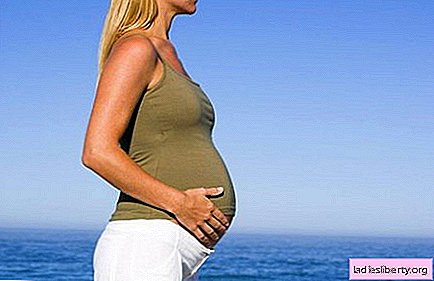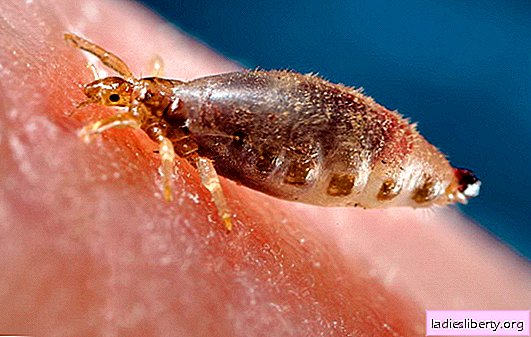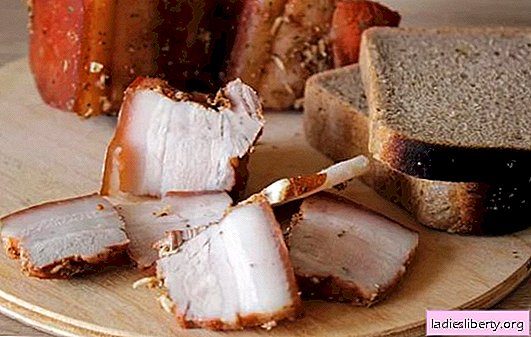
From the moment of birth, for 20 days, babies feed exclusively on breast milk. The digestive tract of a month-old puppy already assimilates protein products, and from the sixth week you can start giving cereal. Every owner who cares about the health of the pet should know which natural products are allowed to be used, and which ones should be discarded.
What porridge is most useful: cereals that can be given to a puppy
Being a source of microelements, minerals and slowly digestible carbohydrates, cereals improve the digestive tract and colonize the intestines with beneficial bacteria. Porridge is a necessary part of the puppy's proper nutrition, which should be at least 40% of the diet. However, it should be remembered that eating not all cereals is suitable for feeding dogs. The best cereals are:
1. Fig. The leader in caloric content (340 kcal per 100 g), so you need to give it with caution. Dog breeders appreciate rice for removing toxins from the body, stimulating metabolism, and normalizing the functioning of the lower intestines. As feed for an animal, it is better to use unpolished cereals, in the shell of which useful ingredients are preserved: B vitamins necessary for a strong nervous system, and calcium for hard teeth and bones. Gluten is absent in rice - the causative agent of allergic reactions.
2. Buckwheat groats. Being a powerful antioxidant, buckwheat has a beneficial effect on the condition of capillaries and blood vessels, reduces blood sugar and prevents the onset of diabetes. The fiber included in the composition improves digestion. Amino acids (choline, lysine, glycine, valine) lower the level of fats, accelerate the synthesis of collagen, stimulate the immune system and improve the absorption of calcium. You can give buckwheat to your pet more often than other cereals.
3. Whole grain oatmeal. It has enveloping properties and is a salvation for animals suffering from diseases of the stomach. Oatmeal is a record holder among cereals in the amount of phosphorus and calcium. But at the same time, it contains vegetable protein and is not suitable for all dogs, as it is an allergen. Introduce this grits into the food circuit must be extremely careful. Attention! Porridge is contraindicated in puppies suffering from urolithiasis.
What ingredients can supplement porridge? Foods Puppies Allowed
Owners taking the first steps in dog breeding should realize that only a healthy animal cannot be raised on cereals. The diet can and should be supplemented with protein products, vegetables and fruits, mixing them with cereals.
The basis of the dog’s growth is meat (35 g per kilogram of weight). The most complete is considered to be fresh beef or low-fat mutton in boiled or raw form, cut into small pieces. Even if the pet is still very small, do not eat minced meat. Controversial issue: what kind of meat can a puppy give a puppy. According to dog handlers, only turkey is allowed to be added to porridge, carefully clearing it of bone fragments.
Meat products alternate with saltwater fish (perch fillet, cod, pollock). The diet must be supplemented with boiled eggs. It is advisable to diversify the food by-products. The kidneys, scar and heart contain trace elements necessary for the proper development of the skeleton. The liver and lungs are added to the feed only after heat treatment.
Vegetables, herbs and fruits are most useful in raw grated or chopped form. The exception is pumpkin - it is boiled with porridge. Such an additive perfectly helps in the fight against worms. Be careful with cabbage - it causes gas formation. Refuse potatoes - the dog’s body does not absorb it well. Of dairy products, give preference to cottage cheese, yogurt and kefir, which disinfect your pet's gastrointestinal tract.
With the right balanced diet, the need for synthetic pharmacy vitamins disappears. They are resorted to only if the animal is unwell or on the recommendation of a veterinarian.
What foods are forbidden to give a puppy and add to porridge
Malnutrition or malnutrition almost always leads to illness. The list of products that are prohibited for dogs include:
Cow's milk - if the puppy has lactose intolerance.
· Corn grits - the pet’s body does not absorb it. Barley and semolina are removed from the diet due to the risk of allergic reactions. Millet contains monosaccharides, mineral compounds, fiber and starch. Such a rich composition is difficult for the puppy's digestive tract and often causes intestinal inversion.
· Pork - fatty meat that contributes to indigestion. It may contain parasites and viruses of the Aujeszky disease to which dogs are exposed. Forget about freshwater fish, very often infected with worms.
· Bones. Only small fresh moslaks are allowed. The remaining parts may contain cracks and sharp edges that damage the stomach and lead to gastritis, ulcers and tumors.
· Sweets, flour, sugar, smoked products, sausages, spices, spices are the strictest taboos and poison that can cause irreversible liver damage. Mushrooms, pasta, beans, peas and white soft bread are prohibited.
The transition from dry to natural feed: what rules to follow and how to start giving a puppy porridge
The first thing that owners need to learn is that dietary changes cannot be made quickly and abruptly. The animal’s digestive tract, accustomed to dry food, needs time to start digesting natural foods. Replace with rice or buckwheat porridge (heated to 35 ° C) with the addition of beef or sea fish.
Enter the minimum quantity of new products in the menu, gradually increasing portions. At first, you can slightly salt the food, flavor it with oil and mix it with dry food in proportions not exceeding 25-35% of the total amount of food. The use of vegetables and dairy products is allowed only on the seventh day. A full transfer to a natural woman is completed two weeks after the start of the feed change.
The best porridge recipes you can give puppies
Rice porridge with meat and vegetables
Take 500 g of beef (can be replaced with a calf heart), place in a saucepan and cook for 30-40 minutes. Meanwhile, finely chop the zucchini, carrots, onions and parsley. Remove the cooked meat from the pan, chop into small pieces. In the resulting broth, prepare rice (based on 100 g of cereal per 350-400 ml of water), then mix it with the rest of the ingredients and let it brew for 10-20 minutes.
Buckwheat porridge with stewed vegetables
Good for well-fed puppies who need to "lose weight." Soak 200 g of cereals for 15-25 minutes, then place in a pan, pour 450 ml of cold water and cook until the liquid evaporates. In another bowl, stew the vegetables (carrots, cabbage, onions and beets), seasoning them with butter. Bring to readiness, transfer to buckwheat container and mix.
Oatmeal (for small puppies, grains need to grind)
Steam the cereal with hot water or lean meat broth. Then place in heat and leave for 20-30 minutes, stirring occasionally. Use on cooking day.
Basic nutrition
Not only the diet matters to the dog’s health. A huge role is played by the rules of feeding:
· Never treat your baby forcibly, make the menu individually based on the preferences of your pet and his appetite. In the bowl should be put so many foods that the animal can eat at a time. If you refuse a portion, the uneaten is removed. Forget the handouts between the main meals!
· Too much feed contributes to obesity, rib deformation, and the likelihood of diabetes. Malnutrition causes an imbalance in metabolism and a decrease in immunity.
· For each age, there is a specific meal schedule. From two to four months, babies are fed 4 to 5 times a day, from four to six months, 3-4 times. Next, a teenage puppy is transferred to a two-time regimen.
Observing these simple recommendations, you will provide your pet with a varied diet and proper nutrition system, which is necessary for the animal’s health and longevity.











